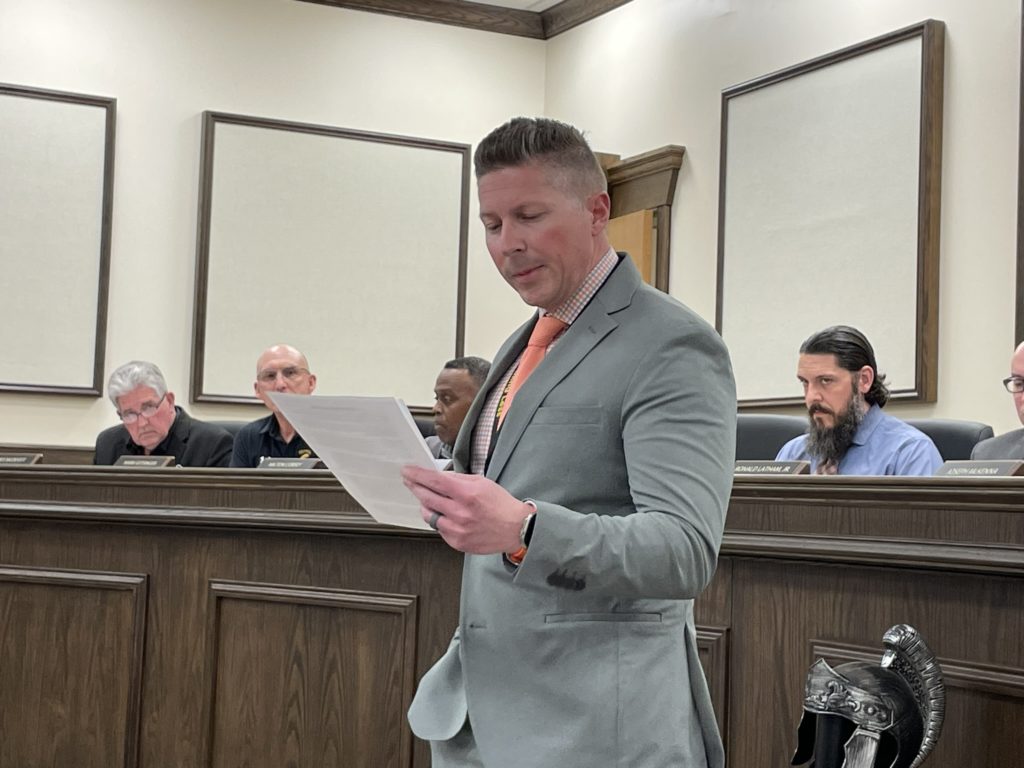
The Deptford board of education has adjusted its student policy on chrome books after an outcry from parents.
The news was announced at the Feb. 27 board meeting by Superintendent Kevin Kanauss, who referred to the policy as “pertinent” to the session.
The district’s initial policy on chrome books set cutoff limits on evening use of the devices and other educational materials so students would have more time to sleep. The times were set at 8 p.m. to 6 a.m. for elementary students, 9 p.m. to 6 a.m. for middle- schoolers and 10 p.m. to 6 a.m. for high-schoolers.
But many parents objected to the policy, arguing that the limits on use did not account for homework and extracurricular activities. So the district has set new hours – now effective – of 9 p.m. to 6 a.m. for elementary-schoolers, 10 p.m. to 6 a.m. for middle-schoolers and 11:30 p.m. to 6 a.m. for high-schoolers.
“While some believe schools should not dictate the terms of access to these devices,” Superintendent Kevin Kanauss said as he announced the change at the Feb. 27 board meeting, “the reality is that by providing this tool, we are liable for how it’s used. Not only in a legal sense, but in an educational and ethical sense as well.
“Access to the non-educational platforms is already blocked on these devices,” he added. “We are more concerned with the students using legitimate tools in unintended ways. For example, several students use Google Docs to chat with each other in the middle of the night.”
Kanauss acknowledged the need to adjust the hours to accommodate student activities.
“To put it directly, we’re not in the business for assigning bedtimes or dictating household rules,” he explained. “However, we absolutely do have a duty to ensure the tools we hand out are used as intended. With all this said, we recognize the need for some students to work later into the evening as they get older and take on more extracurricular and life responsibilities.”
Following the chrome book announcement, the board said it would retain state policy 5756, which is intended to protect the rights of transgender students. Kanauss said the measure helps create a “safe, supportive space” for every student, especially those who are transgender.
“Policy 5756 is designed to bring guidance and support for transgender students,” he noted, “acknowledging the unique challenges they may face, emphasizing our commitment to providing their safety, dignity and full inclusion in all aspects of school life.”
Some parents took issue with the policy, since it states that a school is not required to inform a parent of a student’s gender identity and that no student can suddenly claim a new identity and gain access to certain bathroom facilities.
The superintendent responded by pointing out that the district is open to communication with families and that it will inform parents of a gender identity change, unless the student expresses fear of how the change would affect them at home.









